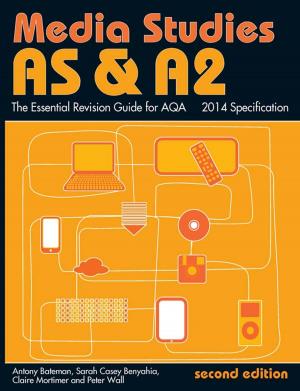Male Adolescence in Mid-Victorian Fiction
George Meredith, W. M. Thackeray, and Anthony Trollope
Fiction & Literature, Literary Theory & Criticism| Author: | Alice Crossley | ISBN: | 9781317102120 |
| Publisher: | Taylor and Francis | Publication: | July 6, 2018 |
| Imprint: | Routledge | Language: | English |
| Author: | Alice Crossley |
| ISBN: | 9781317102120 |
| Publisher: | Taylor and Francis |
| Publication: | July 6, 2018 |
| Imprint: | Routledge |
| Language: | English |
Focusing on works by George Meredith, W. M. Thackeray, and Anthony Trollope, Alice Crossley examines the emergence of adolescence in the mid-Victorian period as a distinct form of experience. Adolescence, Crossley shows, appears as a discrete category of identity that draws on but is nonetheless distinguishable from other masculine types. Important more as a stage of psychological awareness and maturation than as a period of biological youth, Crossley argues that the plasticity of male adolescence provides Meredith, Thackeray, and Trollope with opportunities for self-reflection and social criticism while also working as a paradigm for narrative and imaginative inquiry about motivation, egotism, emotional and physical relationships, and the possibilities of self-creation. Adolescence emerges as a crucial stage of individual growth, adopted by these authors in order to reflect more fully on cultural and personal anxieties about manliness. The centrality of male youth in these authors’ novels, Crossley demonstrates, repositions age-consciousness as an integral part of nineteenth-century debates about masculine heterogeneity.
Focusing on works by George Meredith, W. M. Thackeray, and Anthony Trollope, Alice Crossley examines the emergence of adolescence in the mid-Victorian period as a distinct form of experience. Adolescence, Crossley shows, appears as a discrete category of identity that draws on but is nonetheless distinguishable from other masculine types. Important more as a stage of psychological awareness and maturation than as a period of biological youth, Crossley argues that the plasticity of male adolescence provides Meredith, Thackeray, and Trollope with opportunities for self-reflection and social criticism while also working as a paradigm for narrative and imaginative inquiry about motivation, egotism, emotional and physical relationships, and the possibilities of self-creation. Adolescence emerges as a crucial stage of individual growth, adopted by these authors in order to reflect more fully on cultural and personal anxieties about manliness. The centrality of male youth in these authors’ novels, Crossley demonstrates, repositions age-consciousness as an integral part of nineteenth-century debates about masculine heterogeneity.















